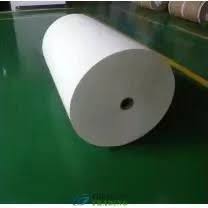- Home
- Duplex Board Manufacturing Process | Quality Production & Custom Solutions
Sep . 07, 2024 01:17 Back to list
Duplex Board Manufacturing Process | Quality Production & Custom Solutions
Duplex Board Manufacturing Process An Overview
Duplex board is a type of paperboard known for its strength, brightness, and excellent printing qualities. It is primarily used in packaging, especially in the production of boxes, cartons, and point-of-purchase displays. The manufacturing process of duplex board involves several stages, allowing manufacturers to produce high-quality products that cater to various industry needs.
Raw Materials
The primary raw materials for duplex board manufacturing are wood pulp, recycled paper, and additives. Wood pulp is obtained from trees and serves as the main ingredient, while recycled paper contributes to the sustainability of the process. Additives are included to enhance properties like brightness, strength, and smoothness.
Pulping Process
The first step in duplex board manufacturing is the pulping process, where raw materials are transformed into pulp. This process typically employs chemical or mechanical methods. In chemical pulping, wood chips are treated with chemicals to break down the lignin and separate the cellulose fibers, resulting in high-quality pulp. Mechanical pulping, on the other hand, grinds wood logs into fibers but often leads to lower quality due to the presence of lignin.
Sheet Formation
Once the pulp is ready, it is diluted with water and formed into sheets. This is done on a paper machine, where the pulp suspension is spread onto a moving screen. A combination of gravity and suction removes excess water, leaving a continuous sheet of wet pulp. This sheet is then pressed and dried to achieve the desired moisture content and thickness.
duplex board manufacturing process manufacturers

Coating and Finishing
After drying, the duplex board undergoes a coating process. A mixture of pigments and adhesives is applied to enhance surface properties, giving the board a smooth finish and improved brightness. The coating also provides additional protection against moisture and wear, making the board suitable for packaging applications.
Cutting and Packaging
Once the duplex board is fully processed and coated, it is cut into various sizes based on customer specifications. This step is crucial as different industries have distinct requirements for dimensions and thicknesses. After cutting, the boards are bundled and packaged for distribution to manufacturers and end-users.
Environmental Considerations
In recent years, duplex board manufacturers have increasingly adopted eco-friendly practices. This includes using recycled materials, reducing water and energy consumption, and implementing waste management systems. By doing so, manufacturers strive to minimize their environmental footprint while meeting the rising demand for sustainable packaging solutions.
Conclusion
The duplex board manufacturing process is a complex yet efficient system that transforms raw materials into a versatile product widely used in various industries. Through advancements in technology and a focus on sustainability, manufacturers continue to innovate and meet the evolving needs of the market, ensuring that duplex board remains a reliable choice for packaging and product display. As industries shift towards more sustainable practices, the importance of environmentally friendly production methods will only grow, reinforcing the role of duplex board in modern packaging solutions.
Latest news
-
High-Quality Bathroom Cabinet Contact Paper – Durable & Stylish Leading Suppliers, Exporters, Manufacturers
NewsJul.08,2025
-
Premium Wood Contact Paper for Desk – Reliable Suppliers & Exporters
NewsJul.08,2025
-
Premium Contact Paper for Table Top – Durable & Stylish Surface Solution from Leading Manufacturer
NewsJul.07,2025
-
Duplex Board with Grey Back - Reliable Supplier & Competitive Price Manufacturer & Exporter
NewsJul.07,2025
-
Premium White Contact Paper on Cabinets – Trusted Exporters & Suppliers
NewsJul.06,2025
-
High-Quality Duplex Board Packaging for Food Reliable Manufacturer & Supplier
NewsJul.06,2025

